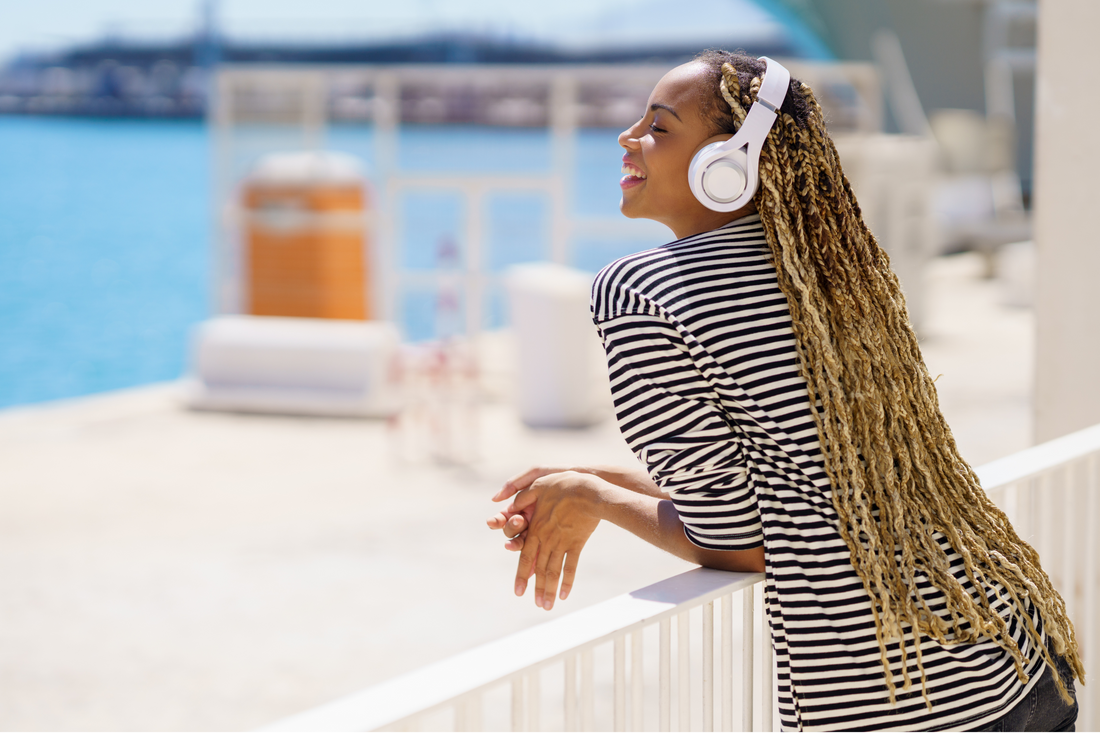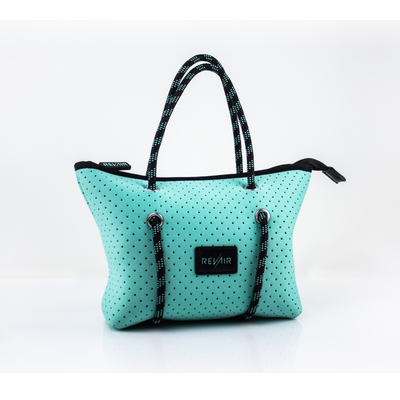
Easy Protective Style Prep Checklist

Prepping Your Natural Hair for a Protective Style
Protective style prep is an essential part of the process when transitioning to a new look. In general, protective styles are low maintenance, simple, and easy to install. Taking the time to care for your curls prior to installing faux locks will allow you to enjoy all of the benefits of protective styles for natural hair.
First, start with a scalp cleanse. A healthy scalp is the root of great overall hair health. Scrub any build-up or product residue from your scalp using a scalp massager, then work in a hot oil treatment to soothe and exfoliate. Your skin will feel refreshed and free of irritation just in time for your new look. In order to prioritize a healthy scalp, opt for low tensions hairstyles like crochet locs, halo twists, and knotless braids.

Next, treat your curls to a deep conditioning mask. You can infuse a DIY mask with coconut oil, honey, yogurt, and apple cider vinegar for a yummy treat for your curls, or head straight to the salon for a strengthening, moisturizing revival. The goal here is for your hair to be optimally hydrated to ensure new growth continues after you've installed a protective style. Conditioning prep will also help strengthen the root to absorb any tension created by your faux locks and minimize breakage. If you hair is especially susceptible to breakage, an additional protein treatment can help ensure your curls are ready for a new style.
Most importantly, stretching your hair is an essential part of protective style prep, especially when your goal is to add length while rocking your faux locks. The key is to prevent shrinkage so your curls are actively growing (and you can see and measure their progress).
What Is Shrinkage?

What causes our curls to appear shortly after months of growth? Well, the good news is that your length is still there. You may simply not be seeing the progress due to natural hair shrinkage. Shrinkage is simply when curls go from their full length to a compact coil. This is most often seen in Type 4 hair, especially 4c coily hair. However, all curly hair is prone to some level of shrinkage. As hair dries, each strand contracts through moisture loss. Don't worry; your curl pattern isn't changing. Your vibrant, luxurious locks are just more compact in their current state.
To see your hair at its fullest, a process called stretching elevates natural hair growth. We've compiled the top 6 stretching tips to implement prior to a protective style. Check them out below!
How to Stretch Natural Hair Before a Protective Style
1.) Comb and Smooth
Brushing out your ends is the simplest way to begin stretching your hair. Optimal length is achieved by doing this step on dry hair. However, as those with Type 4 hair know, brushing can often lead to frizz in the interim. There are a few ways to avoid disturbing the delicate balance of your curls. One technique is to save your comb-out until you're ready for your protective style. You can plan this the morning before your salon visit or the night before and sleep with a silk bonnet to preserve the length.
If your hair needs more than a quick comb out prior to your protective style, we'd suggest gentle brushing techniques such as using your fingers to move through dense curls and pull them to length. You can also comb from mid-length to ends in order to avoid frizz and tension at the root. With a little practice, you'll soon find the right comb-out technique for your unique hair type.
2.) Pineapple Protective Style for Stretching

Are you feeling the summer vacation vibes? Get your hair prepped for holiday hairstyles by starting out with a pineapple protective style. This style is one you can do at home without going to the salon. Simply gather your curls into a high pony and secure the base with a loose scrunchie. This will give your curls space to breathe and grow without creating added tension.
The pineapple technique protects your curls from frizz, tangles, and breakage while you sleep. Many swear by the pineapple technique as part of their nightly beauty routine. Of course, you can rock your pineapple hair throughout the day as well, giving your locks that extra layer of protection as you go about your day.
3.) Hold the Heat
Is it true that heat causes our hair to shrivel up? Well, not exactly, but high heat does contribute to shrinkage through moisture loss. You don't want to put your hair into a protective style when it's crispy and vulnerable. Ideally, your natural hair should be soft, elastic, and shiny when you install faux locks to enhance your look. Start healthy hair care before your protective style is installed by keeping your curls out of the sun, using heat protectants and UV sprays, and being mindful of high-heat styling.
Our amazing RevAir device is a fantastic tool for prepping hair for protective styles. This low-heat, ultra-fast drying device uses reverse air technology to gently dry your curls without exposing them to damaging levels of heat. Implementing low-heat styling will keep your hair at its healthiest for natural hair growth while prepping for a protective style.
4.) Go Low Tension
If you're still deciding which protective style is best for you, part of your prep routine may include determining protective hairstyles for the best natural hair growth. Low-tension styles are ideal for stretching your curls while rocking a new look. A few examples of these include Chignon twists, heatless curls, half-up and half-down curls, and loose buns with free-flowing strands. If your end goal is to install a heavier protective style such as locs or braids, you can start by prepping your hair with these simple styles to get your curls to their full length. These styles are easy to DIY at home. You can even use your RevAir device to prep low-heat curls and shape your natural locks for easy, at-home styling.
5.) Banding and Buns
Stretching natural hair without heat can seem like a challenging dilemma. However, there are several simple techniques designed to do just that -- no styling tools needed! Buns are a great solution for those who are active. Using low-tension techniques for a loose bun keeps your hair maintained, tangle-free, and protected while working on adding length. You can secure the style with clips rather than added hair ties to reduce tension.
Banding is another option, especially for those with longer hair. Type 4c coily hair does well with the banding technique for optimal stretching. This technique is easy to do at home by sectioning pieces of your hair with no-pull hair ties. The end result is a knotless braid look designed to elevate natural hair growth and prep your hair for heavier protective styles.
6.) Stretch While Styling

Did you know you can style and stretch all in one step -- and without damaging your natural curls? Our RevAir community has unlocked the secret to easy protective style prep. Using our unique reverse air drying device, you can smooth and stretch your curls while drying. Want to find out more? Check out how others are using their RevAirs to capture their healthiest, longest curls yet. Learn how to prep your hair for protective styles using a RevAir.
Are you ready for amazing hairstyles this summer? Protective styles are a great way to look fabulous while adding length to your natural hair. While the benefits of protective styles are numerous, the number one reason for many naturalistas is growing long natural hair. Enjoy the freedom to play with different colors, textures, and lengths without compromising your hair growth goals.
Of course, prepping your hair for the look is an essential part of the process. The more you experiment and explore the world of protective styles, the more practice you'll achieve in prepping and installing techniques. The first step is often learning how to stretch your hair in a healthy, heat-free way that won't fry or break your curls. Once you've mastered the art of natural hair growth, the rest is simple and effortless.
Elevate your prep routine and see better style results for length and volume.
Curious to learn more about stretching your specific hair type? Reach out to our team today!















